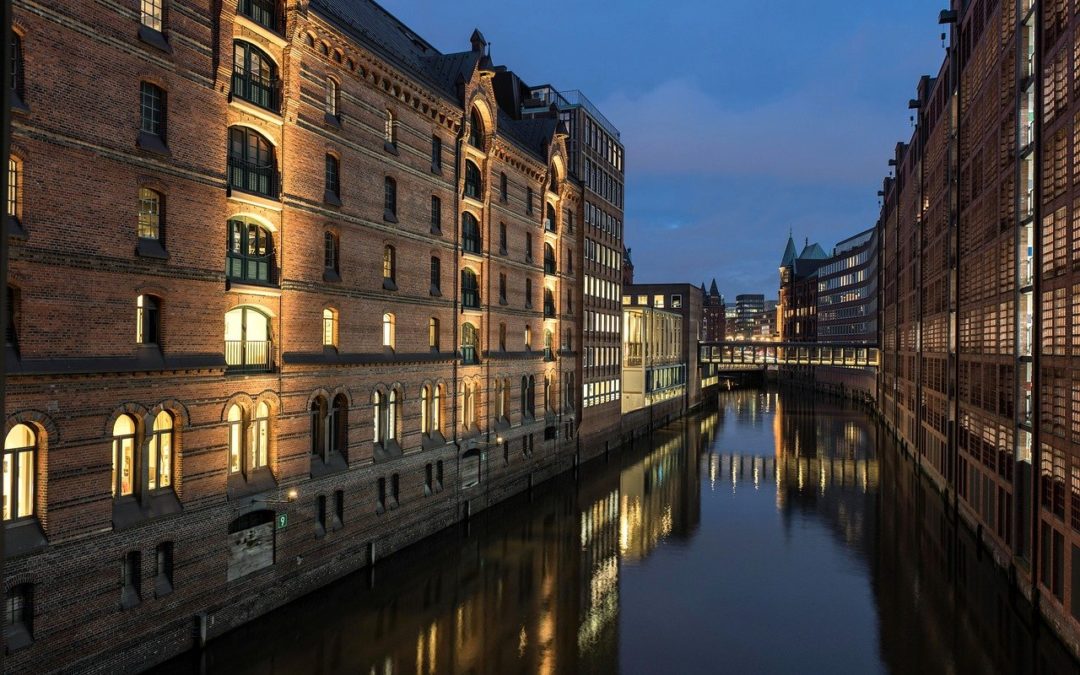Nestled along the banks of the Elbe River and adorned with picturesque canals and historic warehouses, Hamburg stands as a testament to maritime grandeur and economic prosperity. As Germany’s second-largest city and Europe’s third-largest port, Hamburg boasts a rich cultural heritage, a thriving economy, and a real estate market that reflects its status as a global hub of trade, innovation, and opportunity. Against the backdrop of Germany’s evolving urban landscape, Hamburg’s real estate sector emerges as a beacon of stability, growth, and diversity.
Hamburg: A Gateway to the World
Hamburg’s identity is intrinsically linked to its maritime legacy, as evidenced by its bustling port, historic Speicherstadt district, and iconic landmarks like the Elbphilharmonie concert hall. Yet, beyond its maritime charm, Hamburg pulsates with cosmopolitan energy, cultural vibrancy, and entrepreneurial spirit. From the trendy neighborhoods of St. Pauli and Sternschanze to the leafy suburbs of Blankenese and Harvestehude, the city offers a tapestry of lifestyles and experiences that cater to residents of all backgrounds and preferences.
As a major center of commerce, finance, and logistics, Hamburg boasts a diversified economy driven by industries such as shipping, aerospace, media, and technology. Home to multinational corporations like Airbus, Beiersdorf, and Otto Group, Hamburg attracts a steady influx of skilled professionals, investors, and entrepreneurs seeking opportunities in a dynamic and stable business environment.
The Hamburg Real Estate Landscape
Hamburg’s real estate market is a reflection of its cosmopolitan character, characterized by a diverse range of properties spanning historic Altbau apartments, modern waterfront developments, and leafy suburban enclaves. With its strong economy, high quality of life, and relatively affordable housing compared to other European capitals, Hamburg attracts a diverse mix of residents, investors, and visitors seeking to call the city home or establish a foothold in the European market.
One of the defining features of Hamburg’s real estate market is its resilience and stability. Despite occasional fluctuations, property values in Hamburg have shown remarkable consistency, buoyed by strong demand from both domestic and international buyers. The city’s limited supply of land, coupled with strict zoning regulations aimed at preserving green spaces and architectural heritage, has contributed to a steady appreciation in property prices over the years.
Trends Shaping Hamburg’s Real Estate Market
Several key trends are shaping the trajectory of Hamburg’s real estate market, reflecting the city’s evolving demographics, lifestyle preferences, and economic dynamics:
- Waterfront Revitalization: Hamburg’s waterfront areas, including HafenCity and the Elbe Islands, are undergoing extensive redevelopment, transforming former industrial sites into vibrant mixed-use districts with residential, commercial, and cultural amenities. Projects like the Elbphilharmonie and the Überseequartier exemplify this trend, attracting investment and tourism while enhancing the city’s waterfront appeal.
- Urban Renewal and Gentrification: Neighborhoods like Altona and Eimsbüttel are experiencing gentrification as young professionals and families flock to their historic streets and vibrant cultural scenes. While this revitalization brings new opportunities for investment and community development, it also raises concerns about affordability and social inclusion.
- Sustainability and Green Living: With a growing emphasis on environmental sustainability and quality of life, Hamburg is embracing green building practices and urban planning principles aimed at reducing carbon emissions, improving air quality, and enhancing public spaces. Initiatives such as the Green Network Plan and the Grasbrook Quarter demonstrate Hamburg’s commitment to sustainable development and livability.
- Tech and Innovation Hub: Hamburg’s burgeoning tech and startup ecosystem is driving demand for flexible office spaces, coworking hubs, and mixed-use developments that cater to the needs of the creative class. Areas like Sternschanze and St. Pauli have become hotspots for innovation and entrepreneurship, attracting talent and investment from around the world.
Hamburg in the Context of Germany’s Real Estate Market
Within the broader landscape of Germany’s real estate sector, Hamburg occupies a unique position as a maritime metropolis with a strong economy, cultural richness, and strategic location. While cities like Berlin and Munich may garner more international attention, Hamburg’s stability, resilience, and quality of life make it an attractive destination for investors seeking long-term value and sustainability.
As Germany continues to evolve and urbanize, Hamburg’s real estate market is poised for further growth and transformation. While challenges such as housing affordability and social equity remain pressing concerns, Hamburg’s commitment to innovation, sustainability, and inclusivity bodes well for its future as a global city of opportunity.
In conclusion, Hamburg’s real estate market reflects the city’s maritime legacy, economic resilience, and cultural diversity. As investors, residents, and visitors alike are drawn to Hamburg’s unique charm and entrepreneurial spirit, the city’s real estate sector stands as a testament to its enduring appeal and potential for continued growth and prosperity.
about us

about us
mortgage-brokers.de is an independent broker of construction and property financing all over Germany with access to top conditions from over 500 banks.
Gregor John von Freyend |
||
| Address | Phone | Further |
|
Max-Planck-Straße 4 D-85609 Munich / Aschheim |
Land line: +49 89 / 41 6136 16 Mobile: +49 176 / 55 22 55 91 |
schedule an online meeting +49 176 / 55 22 55 91 request@mortgage-brokers.de |

